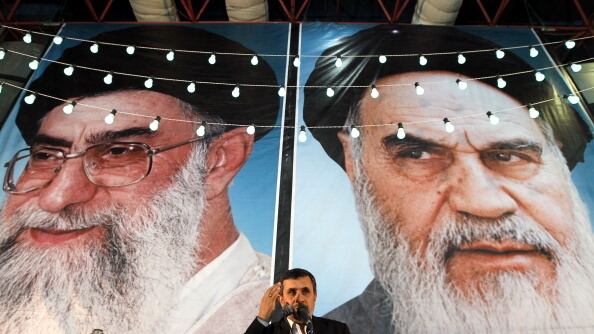On Meet the Press Sunday, Benjamin Netanyahu went on at length about how over-the-top crazy the Iranian government is. Exempli gratia:
They put their zealotry above their survival. They have suicide-bombers all over the place. I wouldn't rely on their rationality. Since the advent of nuclear weapons, you had countries that had access to nuclear weapons who always made a careful calculation of cost and benefit. But Iran is guided by a leadership with an unbelievable fanaticism.

Quick: Name one instance of an Iranian suicide bomber! Nothing? Me either. That's because this meme isn't so well grounded in history or analysis, but rather emotive appeals to unlikely worst-case-scenarios.The unchallenged logic put forth by peddlers of crisis goes like this: since Iran is crazy—unlike, say, the Soviet Union and China (never you mind that we said at the time the U.S.S.R. was "animated by a new fanatic faith")—should the Islamic Republic get the bomb, the deterrence theories based on threats of retalitatory nuclear strikes that have kept atomic weapons holstered since World War II would crumble.This routinely cited in hawkish talking point is what my friend and former colleague Matt Duss called the "'martyr state' myth." Duss's Foreign Policy piece on the subject provides a worthy counterpoint to much of the hysteria that routinely passes for analysis. He found an odd ally this weekend in Benjamin Netanyahu.
It completely passed over my head when I first saw Meet the Press on Sunday, but a careful reader caught the suggestion in a post I wrote about Netanyahu trying to shift American "red lines" on Iran. Here's what the Israeli prime minister said:
And I can tell you, David, that Iran has been placed with some clear red lines on a few matters. And they've avoided crossing them.
You catch that? The phrase "red line" describes an Iranian move that would trigger military action by the West. In this case, Iran faced U.S. red lines drawn at nuclear weapons production—and they "avoided crossing them." Another way to phrase this might be that they've been deterred.
None of this is to say that Iran with nuclear weapons would not be a threat, especially to Israel, nor that such an outcome would be desirable. Rather, we ought to carefully consider how likely the worst case scenarios are and, per Netanyahu, make cost-benefit analyses about the way forward. That the West must make war to prevent an Iranian nuclear weapon is a widely held perspective, but it's just one perspective. We owe it to ourselves to at least consider our options.






